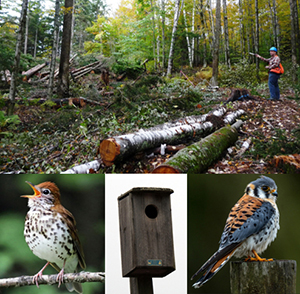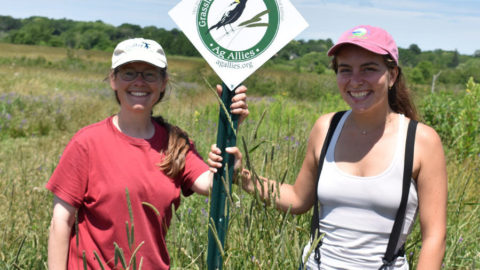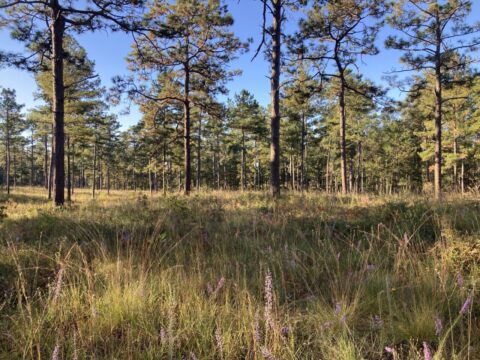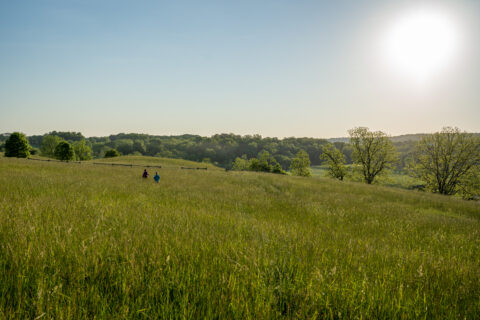Listen Up Collaborative
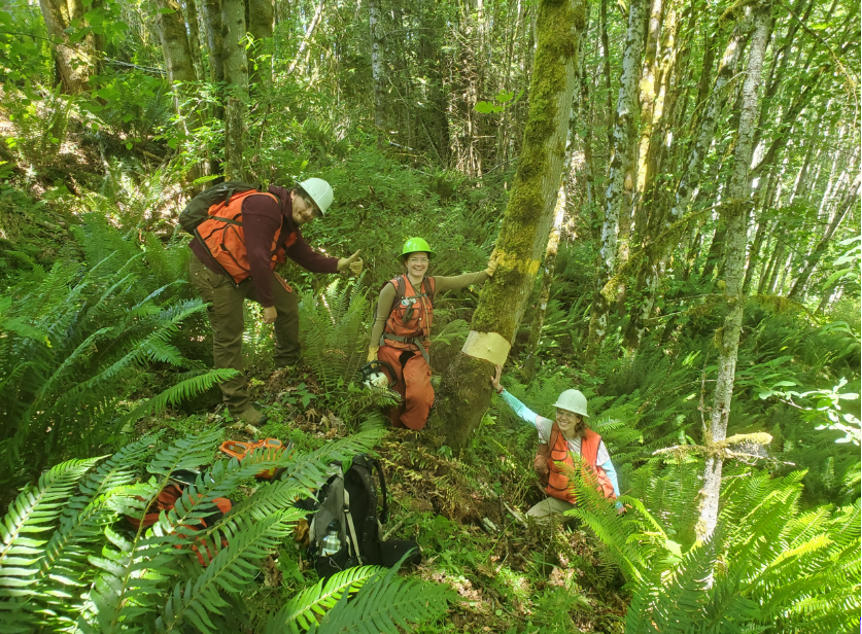
The Listen Up Collaborative is an expansion of a successful partnership of Great Peninsula Conservancy (GPC) and Jefferson Land Trust (JLT) designed to improve the long-term survival of Western Washington forest bird species. The partnership began with a small grant from the Cornell Land Trust Bird Conservation Initiative (LTBCI) in 2022. Continued support was provided in 2023 from LTBCI, and the partners became a Conservation Collaborative in 2024.
A program to manage for fire and climate resilience in the Northwest, share acoustic bird monitoring knowledge, and enhance habitat for bird conservation in Western Washington, the Listen Up Collaborative worked on developing tools and protocols for the partnership in 2022 and 2023.
As identified in the State of the Birds report, scaling up conservation efforts, habitat restoration and participatory volunteer activities through this expansion are critical components for giving birds their best chance for long-term survival in the Pacific Northwest and building a future of involved volunteers and bird enthusiasts. The Listen Up Collaborative will focus on the following goals as it continues to grow in the future:
Goal 1: Implementing state of the art habitat improvement practices on properties protected by land trusts
Based on previous work to establish a climate resilience spatial analysis tool, the partners have identified preserves and forest stands most in need of forest management activities that address climate resilience and mitigate fire risk. By including more regional land trusts in this work, the Listen Up Collaborative will pool resources and leverage funds to implement forest management practices. This work includes thinning overstocked stands and creating more habitat structures like standing snags and habitat piles, improving forest stand structure and species diversity that will support birds moving between and around this ecoregion.
In 2023, the Collaborative implemented habitat management on more than 1,000 acres across 30 preserves. Partners are seeking to expand acres impacted in 2024 by developing new relationships with local and regional land trusts, ecological foresters, and loggers.
Goal 2: Monitoring bird responses to conservation practices with acoustic recording units on properties protected by land trusts
The Listen Up Collaborative identified 58 bird species (5 waterfowl/alcids, 6 owls, 5 diurnal raptors, 38 passerines, as well as California Quail, Common Nighthawk, Ruffed Grouse and Virginia Rail) that would benefit from forest management practices. Of the 58 species, seven are listed as Species of Greatest Conservation Need, 13 are listed as Species of Continental Concern, and four are identified as Common Birds in Steep Decline in the Partners in Flight’s Landbird Conservation Plan (Rosenberg et al. 2016). Using AudioMoth devices for seasonal acoustic monitoring, the partners will determine how well their habitat improvement work is benefiting bird species and adjust to increase effectiveness.

We want to always be checking to make sure that the ways we’re caring for the land are leading to the results we want—and monitoring is the way to do that.
Carrie Clendaniel, Jefferson Land Trust’s Preserve Manager
In 2023, the Collaborative installed acoustic recording units (ARUs) on nine preserves. Potential expansion opportunities for this goal include identifying and developing partnerships with local schools and universities and expanding volunteer community science efforts.
Goal 3: Publicly sharing findings and replicable protocols through outreach and communications
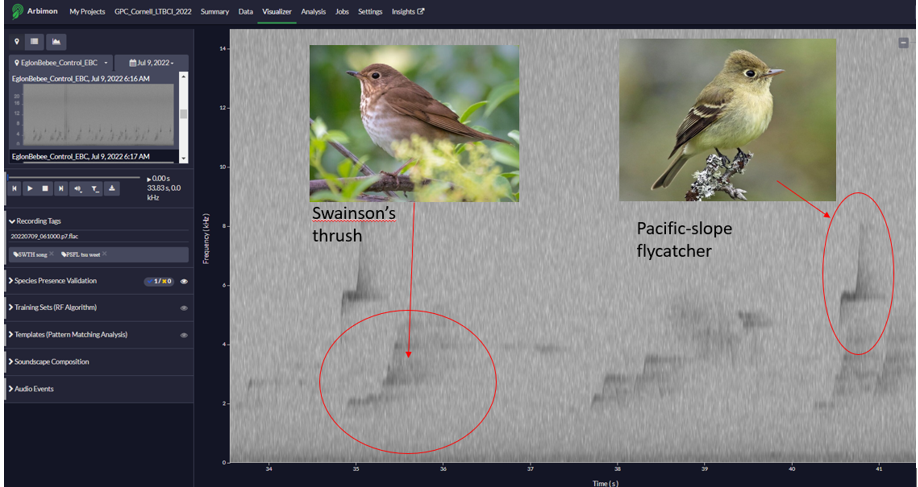
Moving forward, more regional partners will be included in this work to expand and share the knowledge gained by Great Peninsula Conservancy and Jefferson Land Trust. Presentations will be given at regional and/or national land trust gatherings, on partners’ websites, and through other communications channels.
Potential expansion partners could include educational and research institutions, land trust and conservation organizations, regional land protection and management groups, and others interested in contributing to the Collaborative’s efforts to conserve and enhance habitat for birds in Western Washington.





